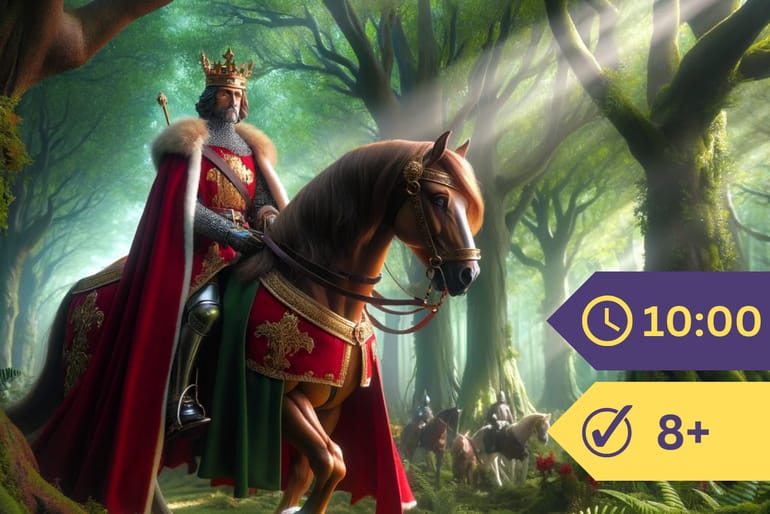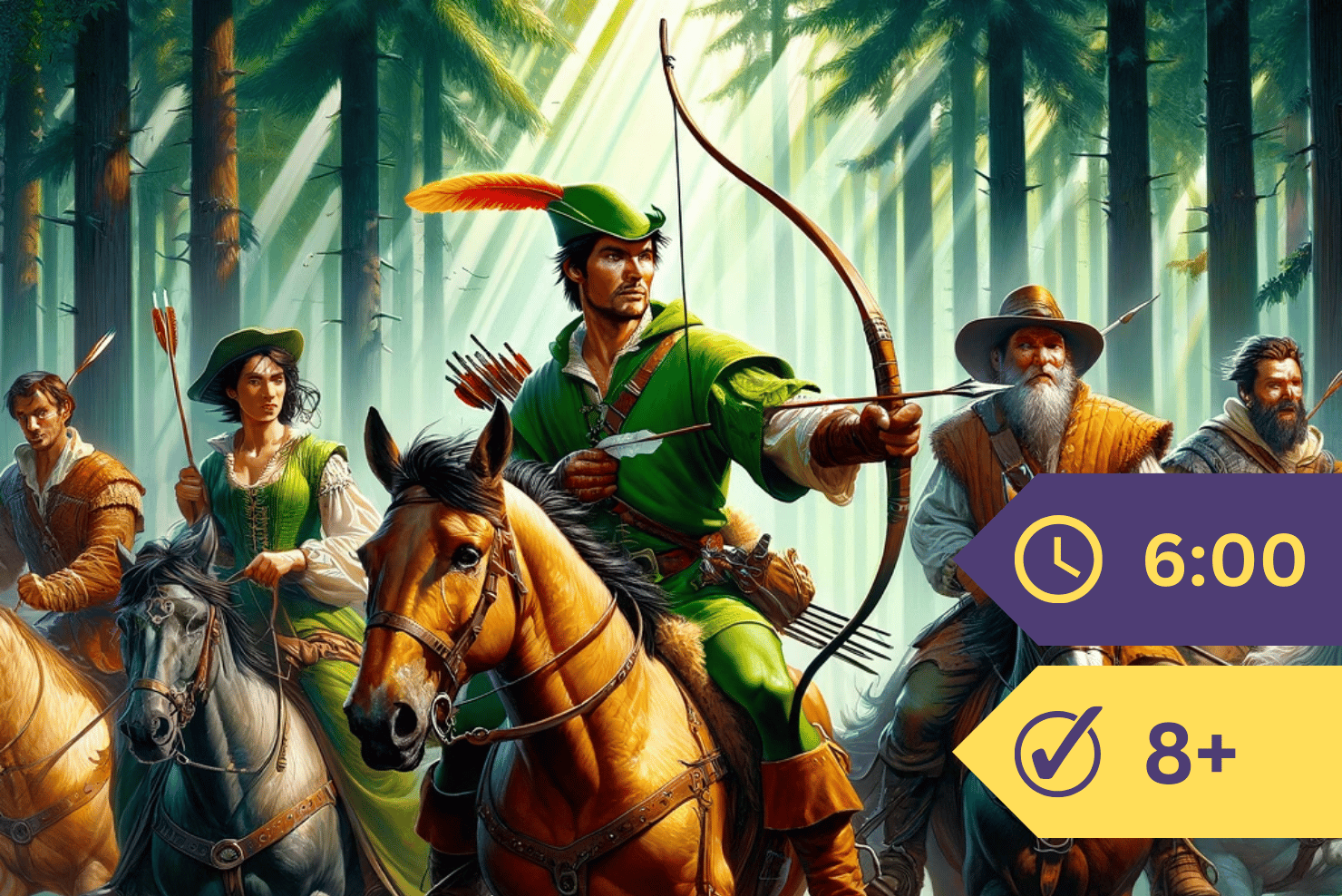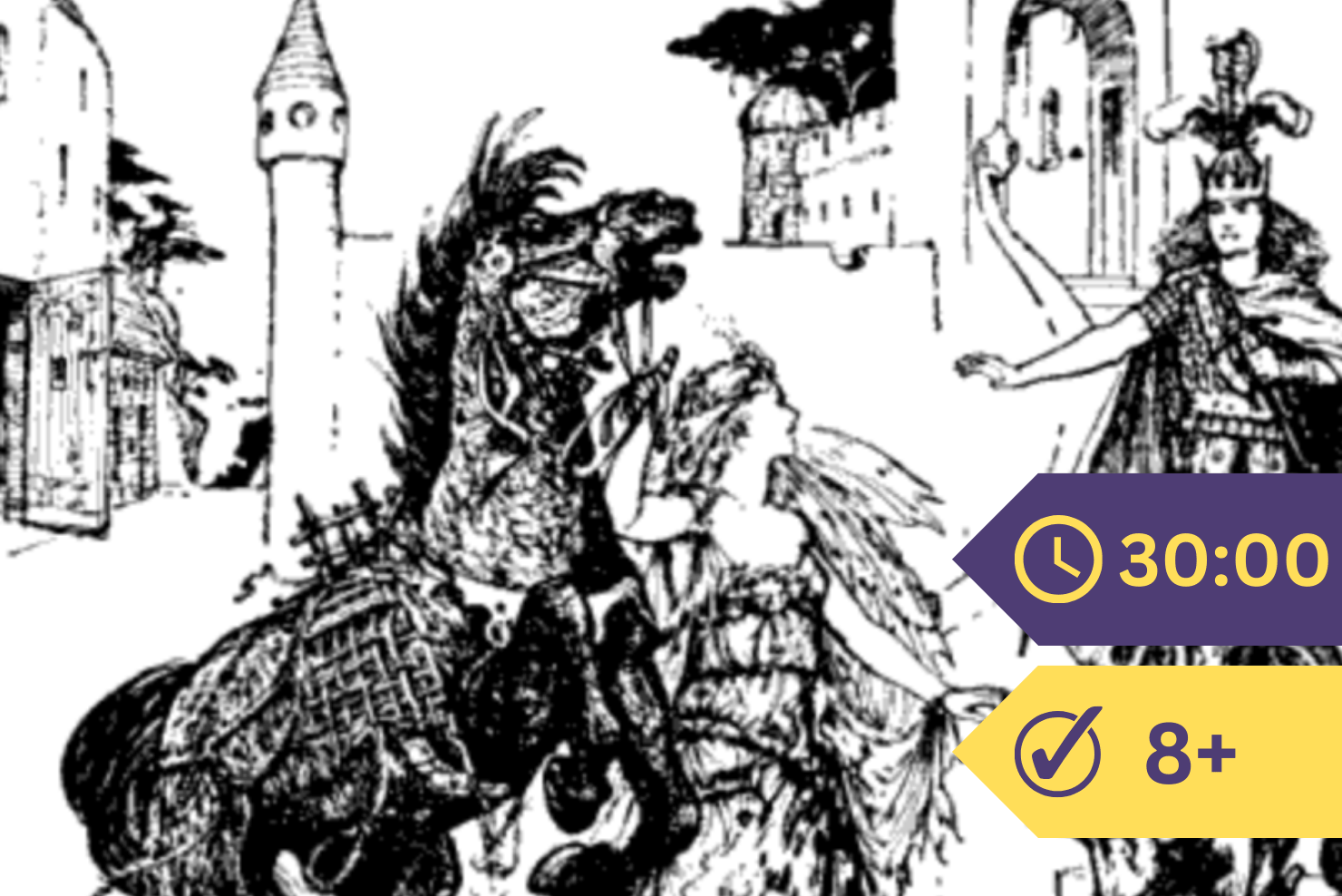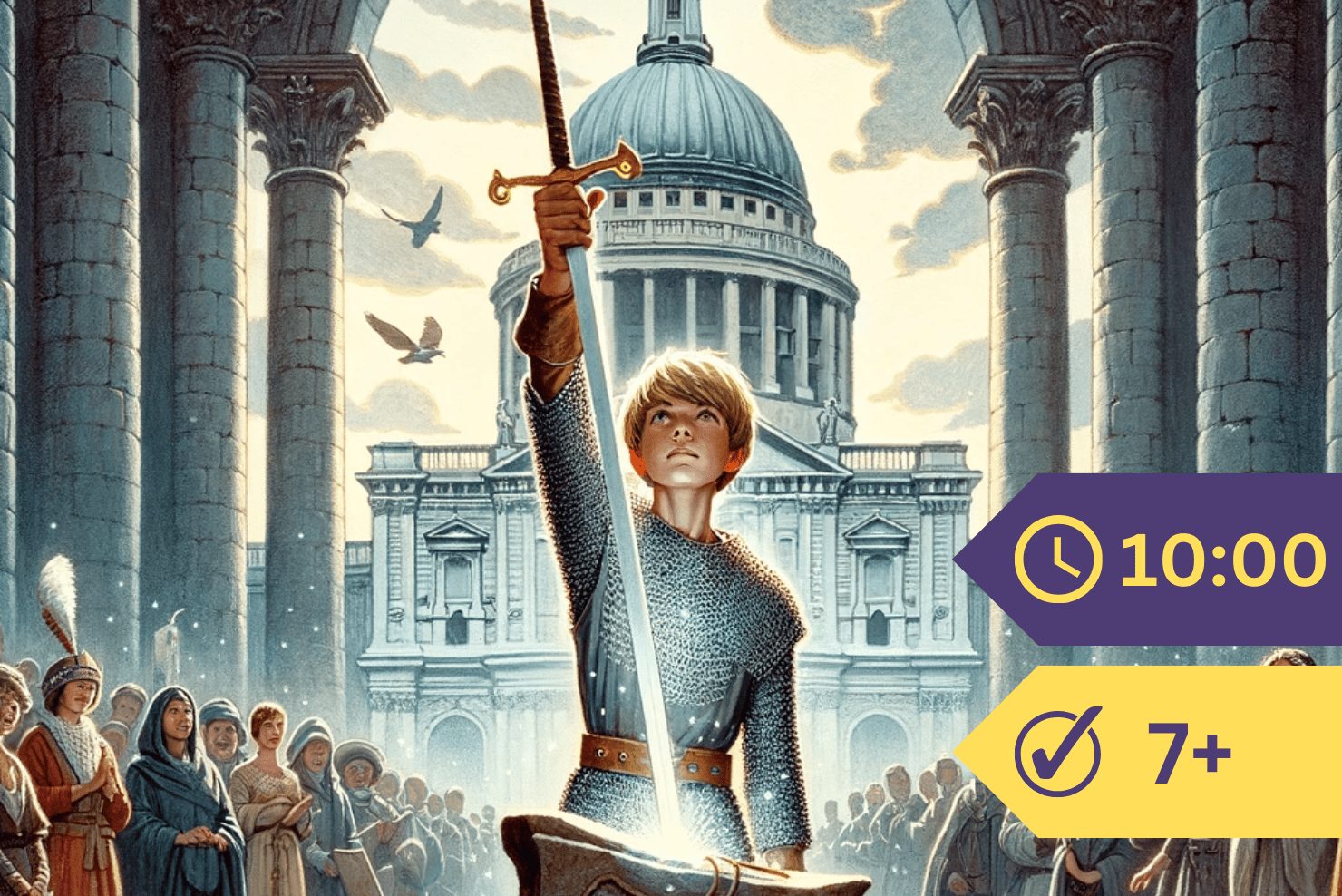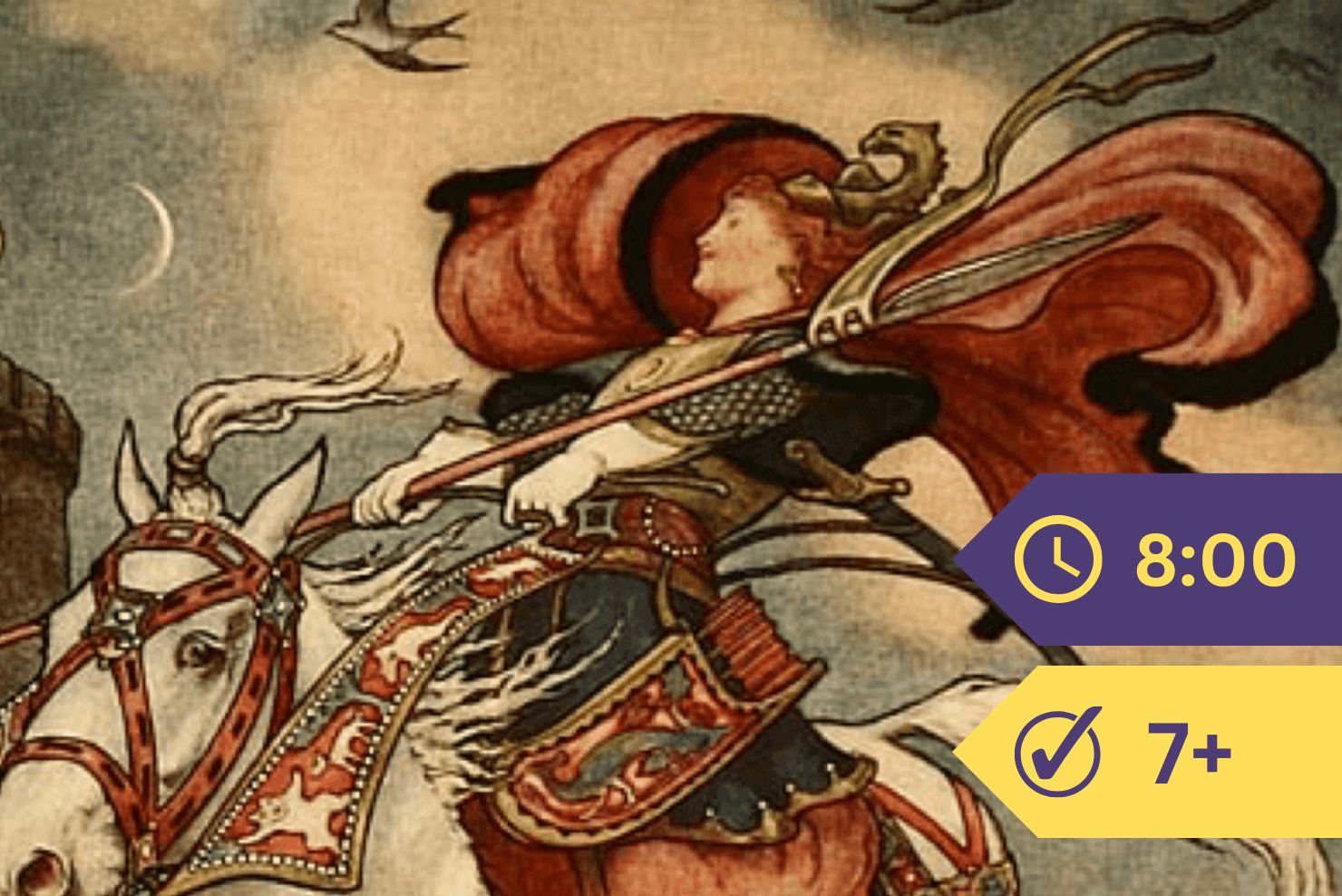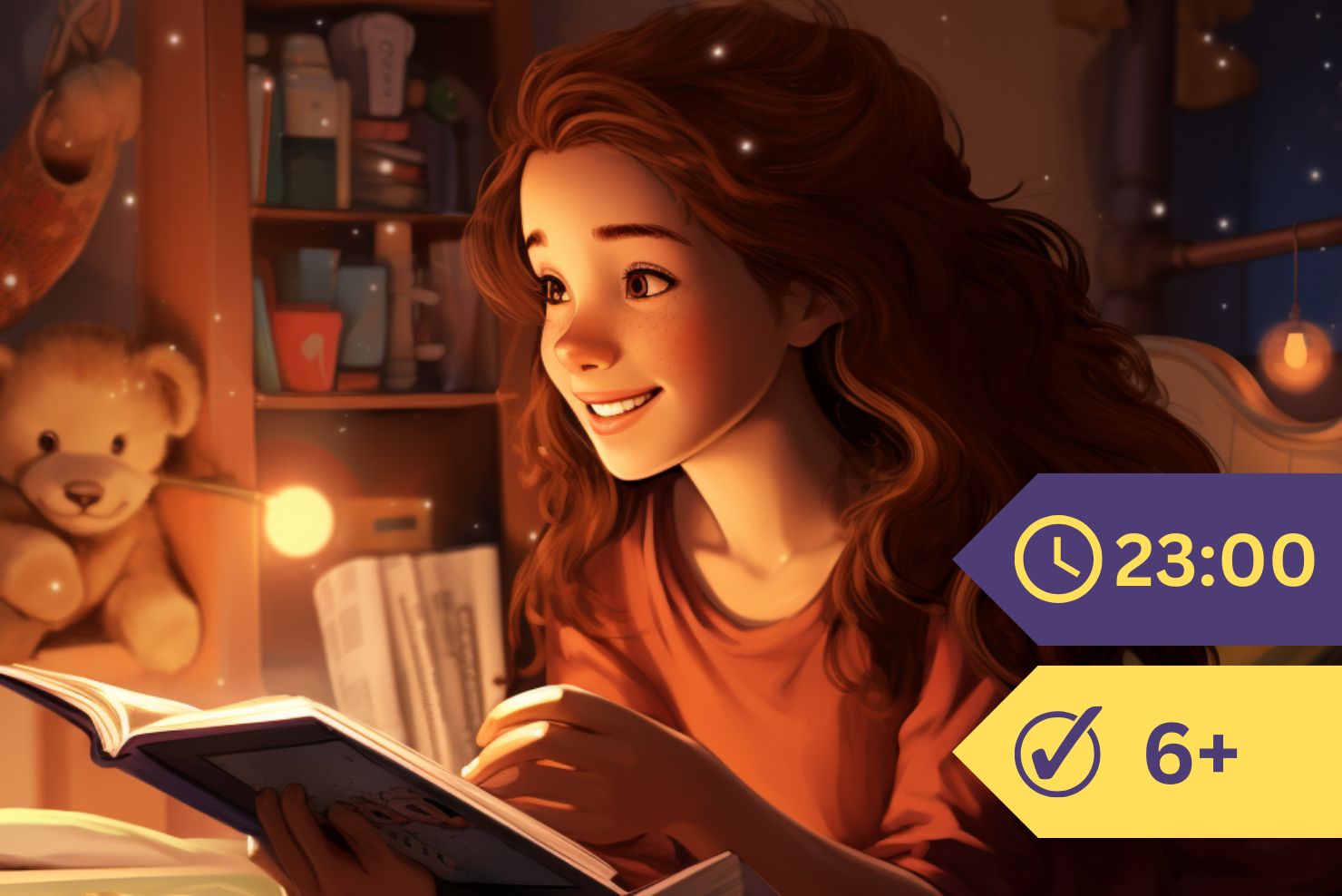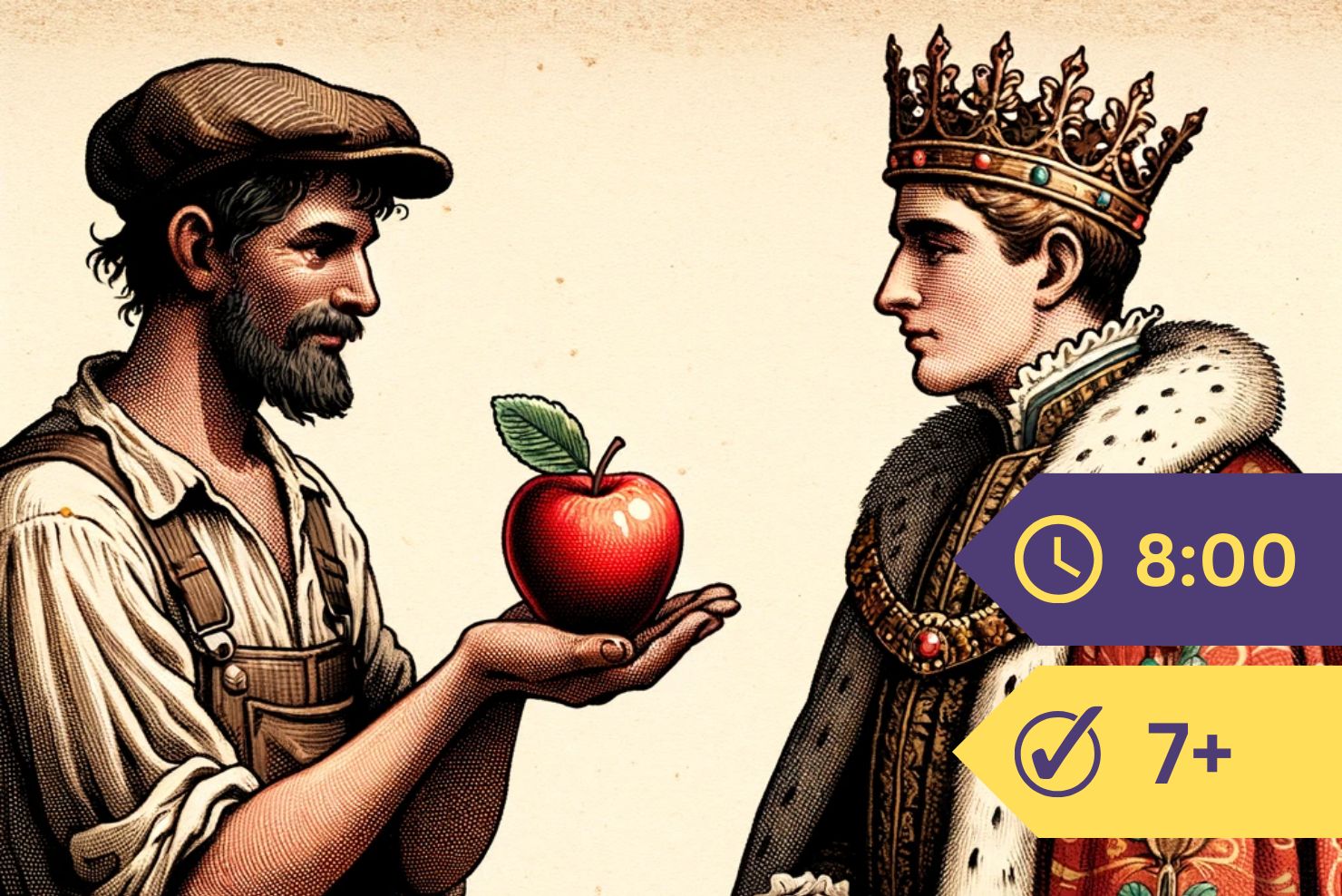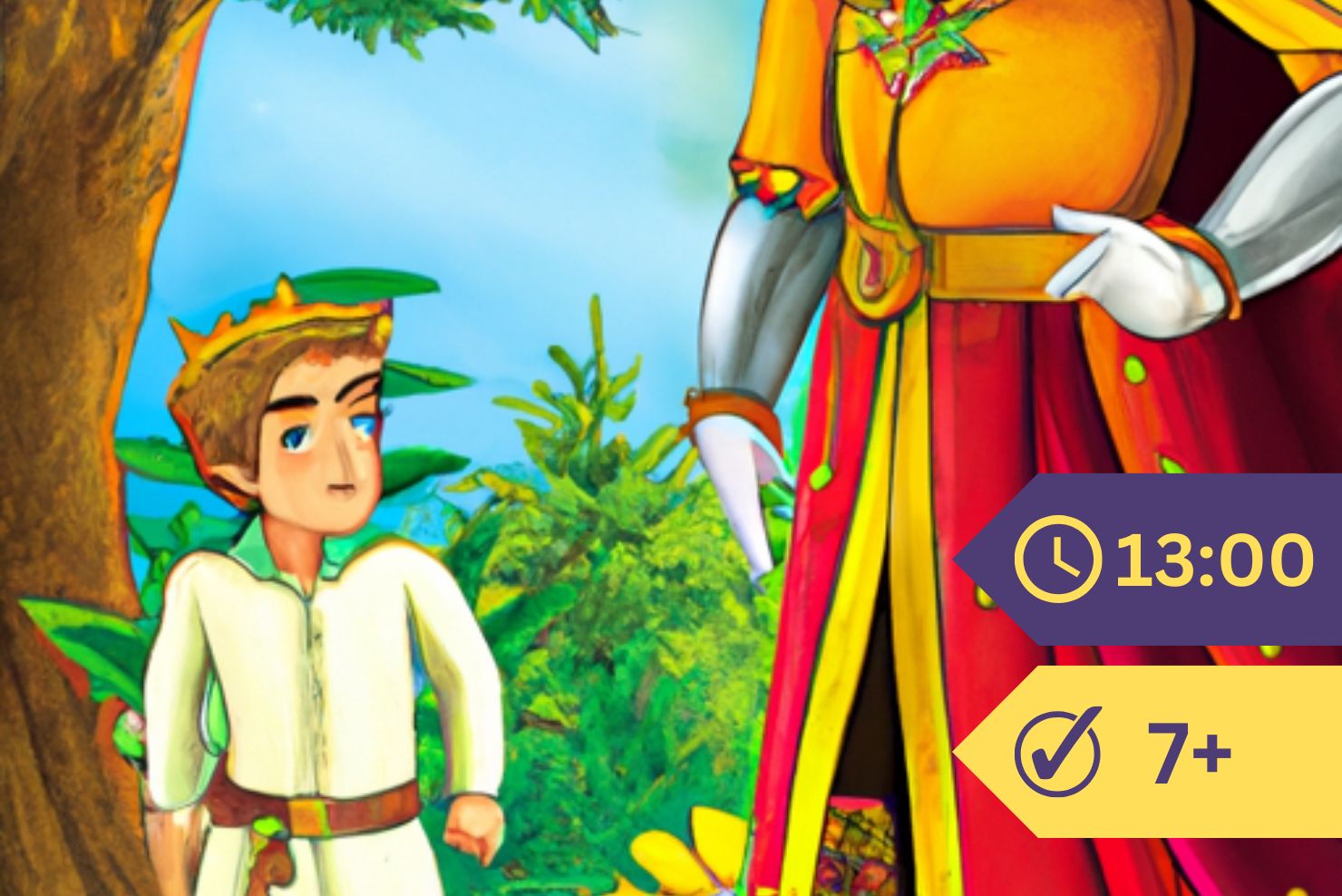Tidings of the sheriff’s death were sent to King Edward in London, and he came to Nottingham with a great array of knights to lay hold of Sir Richard Lee and Robin Hood, if that were possible. He asked information from men of all the country round, and when he had heard their tale and understood the case he seized all the lands belonging to Sir Richard Lee. He went all through Lancashire, searching far and wide, till he came to Plumpton Park, and everywhere he missed many of his deer. There he had always been wont to see herds in large numbers, but now he could scarcely find one deer that bore any good horn.
The king was furiously wroth at this.
“By heaven I would that I had Robin Hood here before me to see him with my own eyes,” he exclaimed. “And he that shall smite off the knight’s head and bring it here to me shall have all the lands belonging to Sir Richard Lee. I will give them him with my charter, and seal it with my hand for him to have and to hold, for evermore.”
Then up spoke a good old knight who was very faithful and loyal.
“Ay, my liege lord the king, but I will say one word to you,” he said. “There is no man in this country who will have the knight’s lands as long as Robin can go or ride and carry bow in hand. If any one try to possess them he will assuredly lose his head. Give them to no man, my lord, to whom you wish any good.”
The king dwelt for many months in Nottingham, but no man came to claim the knight’s lands, nor could he ever hear of Robin Hood in what part of the country he might be. But always Robin went freely here and there, roving wherever he chose over hill and valley, slaying the king’s deer, and disposing of it at his will.
Then a head forester, who was in close attendance on the king, spoke up, and said:
“If you would see good Robin you must do as I tell you. Take five of the best knights that are in your train, and go down to yonder abbey, and get you monks’ habits. I will be your guide to show you the way, and before you get back to Nottingham I dare wager my head that you will meet with Robin if he be still alive. Before you come to Nottingham you shall see him with your own eyes.”
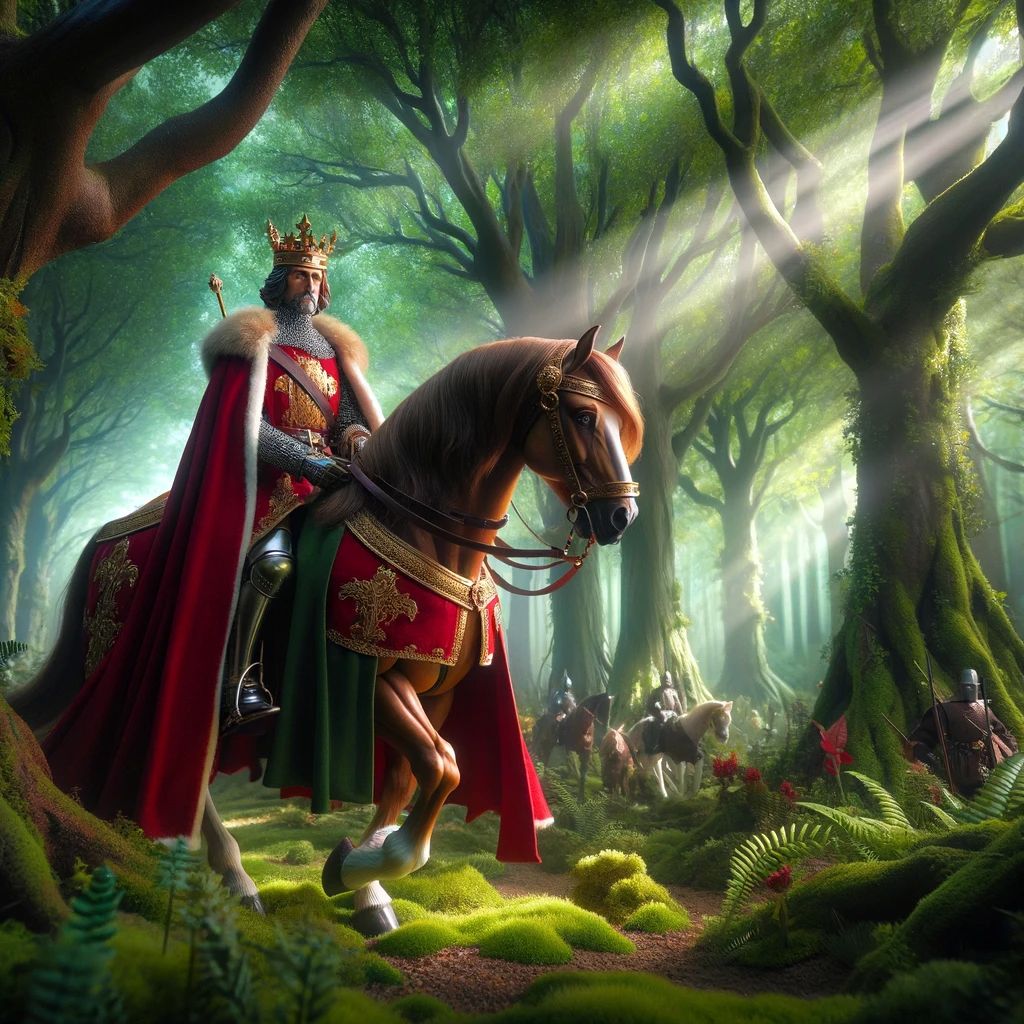
The king hastened to follow the forester’s counsel; he and his five monks went to the abbey, and speedily disguised themselves in the garb of monks, and then blithely returned home through the greenwood. Their habits were grey; the king was a head taller than all the rest, and he wore a broad hat, just as if he were an abbot, and behind him followed his baggage-horse, and well-laden sumpters, and in this fashion they rode back to the town.
They had gone about a mile through the forest under the linden trees when they met with Robin Hood standing in the path with many of his bold archers.
“Sir abbot, by your leave, ye must bide awhile with us,” said Robin, seizing the king’s horse. “We are yeomen of this forest, we live by the king’s deer, and we have no other means. But you have both churches and rents, and full great plenty of gold; give us some of your store for charity’s sake.”
“I brought no more than forty pounds with me to the greenwood,” said the pretended abbot. “I have been staying at Nottingham for a fortnight with the king, and I have spent a great deal on many of the fine lords there. I have only forty pounds left, but if I had a hundred I would give it thee.”
Robin took the forty pounds, and divided it into two parts; half he gave to his men, and bade them be merry with it, and the other half he returned to the king.
“Sir, have this for your spending,” he said courteously. “We shall meet another day.”
“Thanks,” said the king. “But Edward our king greeteth you well; he sends thee here his seal, and bids thee come to Nottingham to dine and sup there.”
He took out the broad seal, and let him see it, and Robin at the sight of it, knowing what was right and courteous, set him on his knee.
“I love no man in all the world so well as I do my king,” he said. “Welcome is my lord’s seal, and welcome art thou, monk, because of thy tidings. Sir abbot, for love of my king thou shalt dine with me to-day under my trysting-tree.”
Forth he led the king with all gentle courtesy, and many a deer was slain and hastily dressed for the feast. Then Robin took a great horn and blew a loud blast and seven score of stalwart young men came ready in a row, and knelt on their knee before Robin in sign of salutation.
“Here is a brave sight,” said the king to himself. “In good faith his men are more at his bidding than mine are at mine.”
Dinner was speedily prepared, and they went to it at once, and both Robin and Little John served the king with all their might. Good viands were quickly set before him—fat venison, fish out of the river, good white bread, good red wine, and fine brown ale. The king swore he had never feasted better in his life.
Then Robin took a can of ale, and bade every man drink a health to the king. The king himself drank to the king, and so the toast went round, and two barrels of strong old ale were spent in pledging that health.
“Make good cheer, abbot,” said Robin, “and for these same tidings thou hast brought thou art doubly welcome. Now before thou go hence thou shalt see what life we lead here in the greenwood, so that thou mayest inform the king when ye meet together.”
The meal was scarcely over when up started all the outlaws in haste, and bows were smartly bent. For a moment the king was sorely aghast, for he thought he would certainly be hurt. But no man intended ill to him. Two rods were set up, and to them all the yeomen flocked to try their skill at archery. The king said the marks were too far away by fifty paces, but he had never seen shooting such as this. On each side of the rods was a rose garland, and all the yeomen had to shoot within this circle. Whoever failed of the rose garland had as penalty to lose his shooting gear, and to hand it to his master, however fine it might be, and in addition to this he had to stand a good buffet on the head. All that came in Robin’s way he smote therewith right good will.
When his own turn came Robin shot twice, and each time cleft the wand, so also did the good yeoman Gilbert. Little John and Will Scarlet did not come off so well, and when they failed to hit within the garland they each got a good buffet from Robin.
But at his last shot, in spite of the way in which his friends had fared, Robin, too, failed of the garland by three fingers or more.
“Master, your tackle is lost,” said Gilbert. “Stand forth and take your pay.”
“If it be so there is no help for it,” said Robin. “Sir abbot, I deliver thee mine arrow; I pray thee, sir, serve thou me.”
“It falleth not within my order, by thy leave, Robin, to smite any good yeoman, for fear lest I grieve him,” said the king.
“Smite on boldly; I give thee full leave,” said Robin.
The king at these words at once folded back his sleeves, and gave Robin such a buffet that it nearly knocked him to the ground.
“By heaven, thou art a stalwart friar,” cried Robin. “There is pith in thine arm; I trow thou canst shoot well.”
Then King Edward and Robin Hood looked each other full in the face, and Robin Hood gazed wistfully at the king. So also did Sir Richard Lee, and then he knelt down before him on his knee. And all the wild outlaws, when they saw Sir Richard Lee and Robin Hood kneeling before the king, also knelt down.
“My lord the King of England, now I know you well,” said Robin. “Mercy, of thy goodness and thy grace, for my men and me! Yes, before heaven, I crave mercy, my lord the king, for me and for my men.”
“Yes, I grant thee thy petition,” said the king, “if thou wilt leave the greenwood, thou and all thy company, and come home with me, sir, to my court, and dwell with me there.”
“I will swear a solemn vow that so it shall be,” said Robin. “I will come to your court to see your service and bring with me seven score and three of my men. But unless I like well your service, I shall soon come back to the forest, and shoot again at the dun deer, as I am wont to do.”

